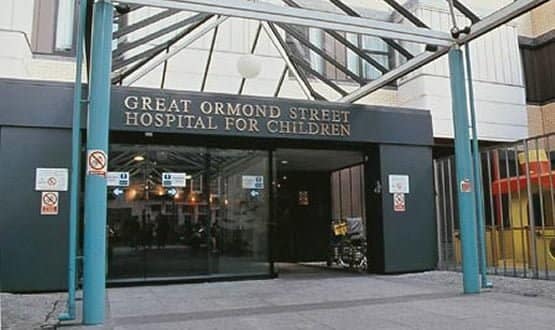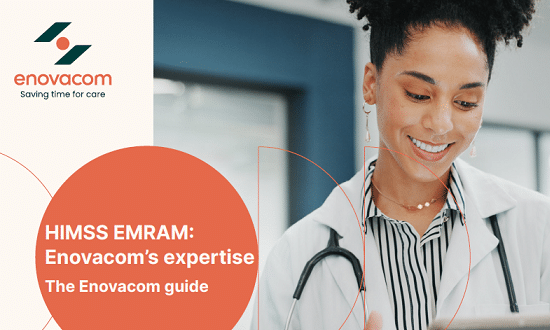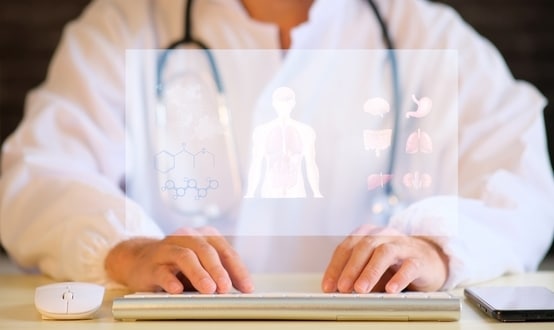GOSH becomes first UK hospital to achieve HIMSS Stage 7
- 17 September 2020

Great Ormond Street Hospital (GOSH) has become the first UK hospital to achieve the HIMSS Stage7 international digital maturity benchmark.
The renowned children’s hospital achieved the certification while responding to Covid-19 after passing a remote assessment that focused on the trust’s use of data and analytics from its new electronic health record system to improve patient care.
Dr Shankar Sridharan, chief clinical information officer (CCIO) at GOSH told Digital Health News what the benchmark meant.
“We want to provide the best paediatric care in the world and we need to be the most digitally advanced hospital in the world to achieve this,” he said.
“The aim was to harness technology and data to provide safer, smarter and kinder care.”
The achievement was the result of a huge amount of work across the organisation and a reflection of just how far the trust had come in a few years, he added.
Epic installation
The trust installed Epic’s EHR as part of a hospital wide and clinically led digital change programme in April 2019.
Dr Sridharan described the Epic programme and their analytics programme as transformational, affecting every interaction staff had with every patient with the platform underpinning the trust’s digital response to Covid-19.
“Every digital interaction was changed and staff have been trained to work better digitally,” he said.
“Three-years ago GOSH ranked in the bottom 10% of digital maturity in the NHS.
“The HIMSS award is a recognition of how much everyone at the trust has achieved in a very short space of time.”
Sarah Newcombe, chief nursing information officer (CNIO) at GOSH added that the digital transformation has become a key enabler for the nursing team.
“We always provided great care but had to often spend hours searching for records,” she said.
“The digital platform gives much greater visibility of patients and what is happening across the hospital.”
Looking ahead
Having achieved the international benchmark, the trust now aims to go much further still.
Professor Neil Sebire, chief research information officer (CRIO) at GOSH described the work to reach HIMSS stage 7 as being a vital foundation but just the beginning of the journey, and that the greater prizes were yet to come.
“The EHR gives us all these vital benefits of how we manage the hospital and patients, but that’s really just a foundation,” he said.
“You need the data and you need the platform but much more exciting are all the things we can’t yet do: AI, cognitive services and clinical decision support.
“It’s about looking at the data to identify triggers, gain insights and all the other things we can do on top. Think of it as the next generation and HIMSS ‘stage 8’.”
Preparation and strong leadership
Asked how the trust managed to go from a digital tail-ender to leader, the trust’s clinical information leaders say that preparation and strong leadership were key.
“Our CEO and board completely understood that we had to really move forward on digital,” said Dr Sridharan.
“We built up an awesome clinical informatics team of nursing, medical, pharmacy and AHP information officers – really smart, driven people -embedded throughout the trust.
“I am a 70% CCIO and I sit on the board of the trust and have a real voice and strategic steer. Many of the things in the Wachter report we’ve done.
“We also had a really clear vision to do this properly, and not fiddle around at the edges. You do need to get a board who will understand that needs a commitment from the whole organisation.
“In our Epic EHR programme everyone has had to change the way they work and 99.5% of staff committed to 8 hours of training on Epic before ‘go live’. The message from our CEO and medical director was ‘if you don’t have training you can’t work here’.
“We also spent a long time learning from others to learn what others have done – and understanding where other places have stumbled or raised the bar.”
“And we knew what could be achieved by looking at our international peers in places like Melbourne, Toronto and Boston, we also knew what was missing,” added Professor Sebire.
“This international focus combined with our very strong research programmes meant that we were ambitious and did things like establishing the secondary use data platform ahead of the EHR and saw Epic as just one source of healthcare data.”
Part of the ambition was also to go live with a lot of functionality from day one, rather than take an incremental approach or do in phases.
Creating an ecosystem
Dr Sridharan described the EHR as forming part of a wider eco-system, including DRIVE (Digital Research, Informatics and Virtual Environments Unit), the trust’s impressive new data and digital innovation unit that brings together NHS clinicians, academics, computer scientists and industry to assess and operationalise digital technology and capability for healthcare.
The digital research environment architecture set up in DRIVE was used during the Covid-19 crisis to stand up the analytics capability of the Nightingale hospitals within days.
Newcombe described the HIMSS award as something to be proud of.
“It is a real reflection on hard work and the investment the team has put into this,” she said.
“It is a big thing. The difference in just a few years is huge and really showing in the quality of patient care and patient experience we are delivering.”
One key area of patient safety GOSH is seeing early improvements in is barcode medication scanning.
“We’re really proud and excited of what we have achieved and want to continue to push forward. It’s the beginning of what is possible,” Newcombe added.
‘Game-changing’ patient engagement
According to Dr Sridharan, patient engagement has been “game-changing”.
“Using the patient portal, patients can now see their letters, rearrange appointments, get their results within an hour for some tests and get in contact with their doctor or nurse,” he said.
“We’ve made patients a real partner in their health.”
The trust said it recognises that there is still lots of work to do, which will include continuing to ensure that underlying IT infrastructure safely supports the ubiquitous use of the EPR across the hospital and for staff working off-site.
But the step change made by staff over the past three years gives real reason for optimism





6 Comments
I’m sure Jon will update this shortly. What the title should probably read is that GOSH is indeed the first European Hospital achieving HIMSS level 7 O-EMRAM. There are indeed hospitals in Europe like Cascais in Portugal and Radboud in the Netherlands with EMRAM level 7 accreditation but not O-EMRAM. Not quite the same as the title indicates but still a huge achievement.
A Spanish Hospital got this in 2012. Might need a further update Jon as still inaccurate.
https://www.healthcareittoday.com/2012/05/12/himss-analytics-europe-identifies-first-emram-stage-7-hospital-in-spain/
GOSH as first HIMSS 7 in Europe — Hi this is Jon the author of the article. It does need a clarification, there have been a couple of hospitals that have achieved HIMSS 7 in Europe. For instance, there is a Turkish dental hospital that doesn’t admit patients and the Portugese hospital Hospital de Cascais Doutor José de Almeida has also achieved the benchmark. Will update the story
Probably change the title to first British hospital to achieve stage 7. Cascais in Portugal and others have achieved this in Europe.
It’s not even accurate after that. GOSH have only achieved an O-EMRAM which is for outpatients only. This pretty much leaves out all of the hard bits!
I own the front wheel of a Porsche. Am I now the owner of a 911 Turbo?
This isn’t accurate. GOSH is the first UK Trust to achieve stage 7 EMRAM but there are hospitals in Turkey, Portugal and Netherlands which have been stage 7 for some time.
Comments are closed.